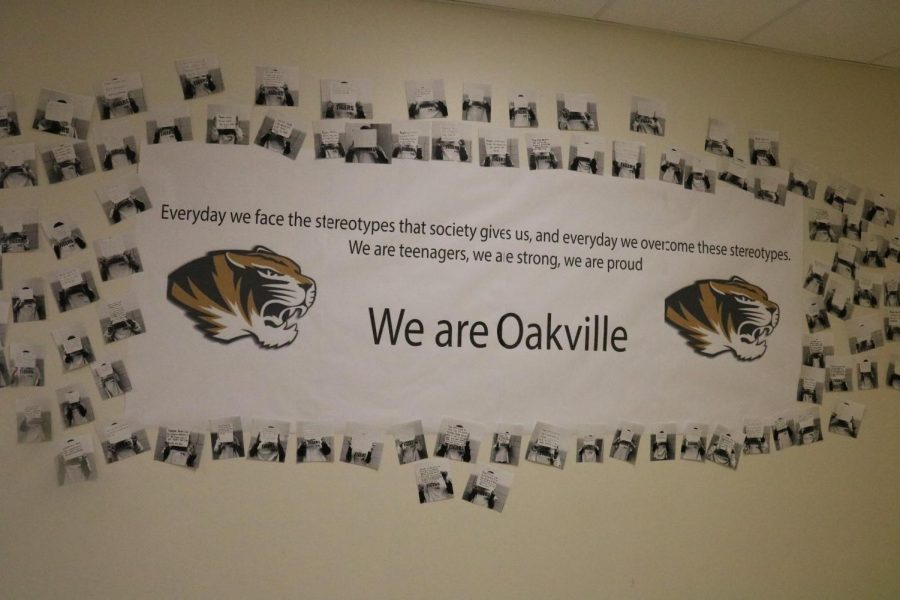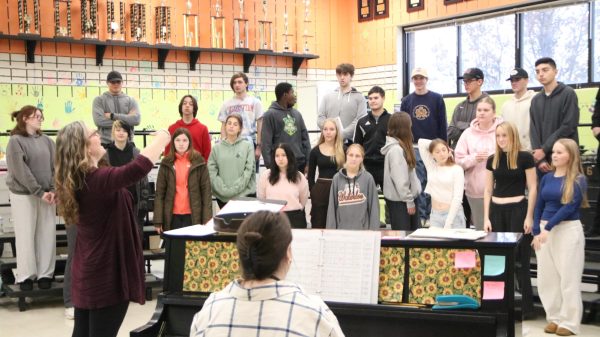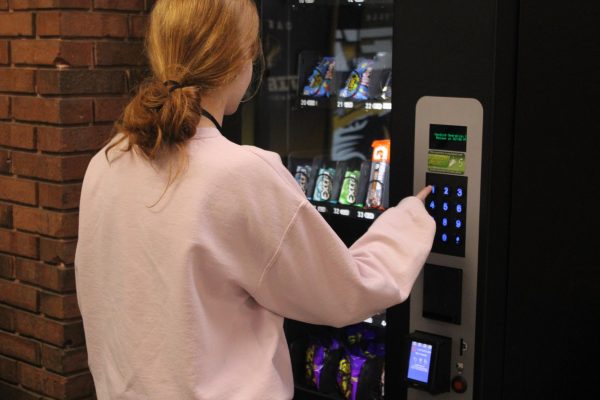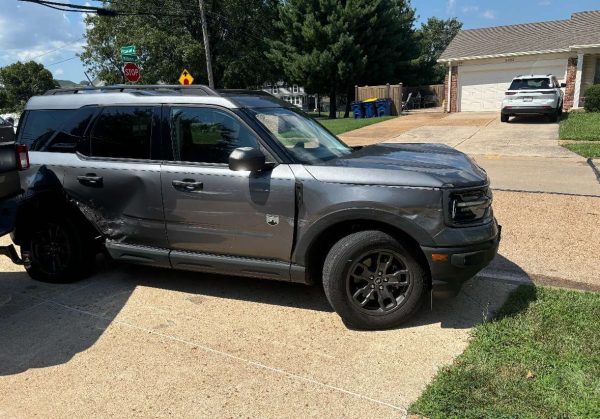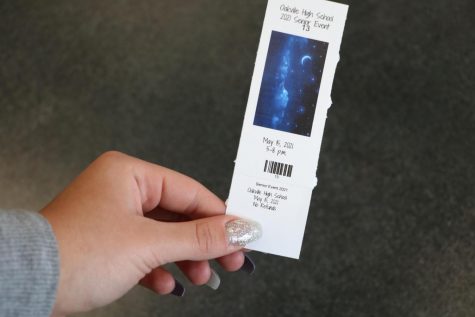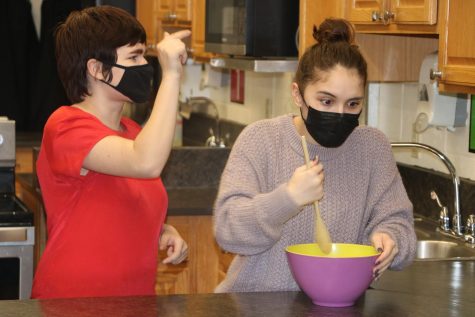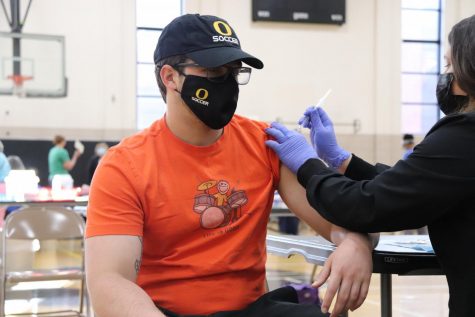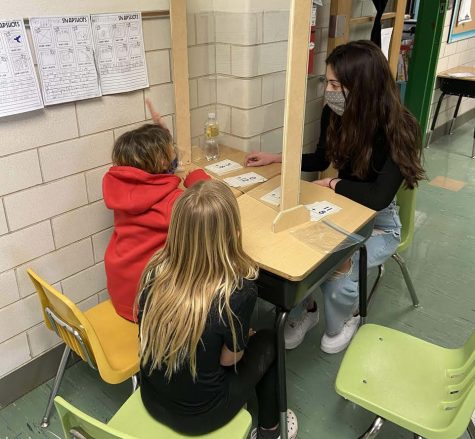Health project breaks stereotypes
New health wall project that aims to break stereotypes.
A new addition to the health hallway has been catching the attention of many students and teachers.
A poster outside Room 237 reads “Everyday we face the stereotypes that society gives us, and everyday we overcome these stereotypes. We are teenagers, we are strong, we are proud, we are Oakville.” Pictures of students wearing matching shirts and whiteboards covering their faces surround the sign, and the boards show secrets about each student.
The students in the health classes produced this poster as part of the empathy unit in the health curriculum. Ms. Emily Baker, along with Mrs. Laura Bishop, believed that in the past this topic went “in one ear and out the other,” so they decided to approach it a different way this semester. They wanted the students to take the information they were taught with them in a very effective way. That’s where the idea of the poster came to play.
The inspiration came from social media. Baker said the inspiration came from a college sorority group around eight years ago. A parent on her social media tagged their daughter in something similar to this, and it popped into Baker’s mind as the time for this semester came around.
The sorority group did the same, but wrote it on their hands. Although it was a good idea, Baker did not like that. “They would be more willing to participate if it didn’t show their face,” Baker said.
So, Baker added her own twist to the idea. The students are pictured in the same shirt to not only conceal their identity but to show that labeling someone without knowing who they truly are is wrong. Instead of the hands, Baker and Bishop used white boards where the students could write what they wanted to while protecting their identity.
“No one complained, and were, I think, super willing to do it,” Baker said. “The required assignment was extremely private.”
No one besides she and Bishop were allowed to see what their students had written. They also got to choose what they wrote. Some quotes included some students talking about how they have suffered through different mental illnesses and struggles, while others talked about problems with friends.
“Everyone labels people,” Baker said. “Even as adults we have a bad habit of doing that. I don’t really know these kids and seeing what they have said, now my empathy level has increased deeply for them. [Now} students can see that on the wall and their eyes are open to how they treat others in the classroom.”
Bishop and Baker are both hopeful about the future of this project.
“I would love to do it next year,” Bishop said. “I would like to make it more broad across the building. Give more students the opportunity to post their input and have the poster where more students could read it.“
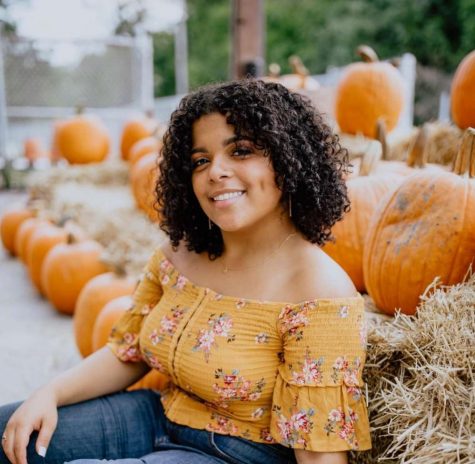
Hey all! I’m Avery Neal and I am a senior here at OHS. I’m the social media coordinator for Newspaper, Broadcast, and Yearbook and I’m an editor...


